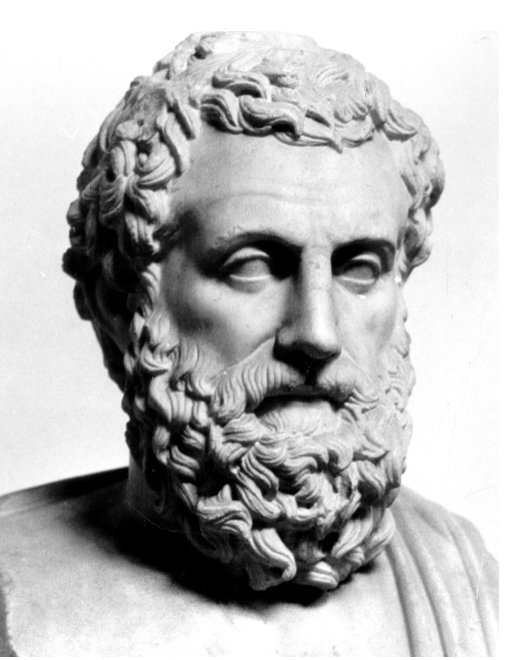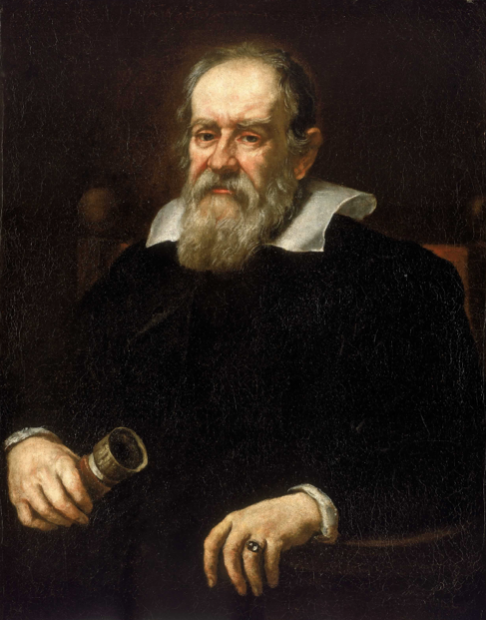0.2: Physics is Hard!
- Page ID
- 63025
↵
Some Historical Perspective
You are in luck! You are poised to study of one of the most difficult subjects ever undertaken by humankind. For some of you, this may not exactly conform to your definition of "luck." But for just about every career physicist out there, the inherent difficulty of this subject is the primary reason they like it so much. There is a mistaken notion out there that a professional physicist just naturally understands their subject, and that it is easy for them. Some physicists may even try to lead others to believe that this is true, because it makes them look smarter. But the fact is that this subject simply does not fit neatly into our brains, and we all struggle with it. Physicists get better at the basics of physics from constant practice, but this should not be taken as evidence that they understood it instantly the first time they saw it, while lesser mortals struggle with it. Physics is hard for everyone. Here's a short historical perspective on this fact, showing how even the greatest human minds in history struggled with physics...
Aristotle (384 - 322 BCE)

Considered one of the most brilliant minds in human history, when it came to physics (or "natural philosophy"), Aristotle got just about everything wrong. His erroneous approach to something as basic as the physics of celestial and terrestrial motion would dominate western thought for nearly two millennia! Aristotle was a great observer of the natural world. He was great at collecting knowledge. He tried to derive understanding from these observations, and failed terribly – the laws of nature were just too subtle for even his prodigious intellect.
Copernicus (1473 - 1543)

One of the greatest problems people have in figuring out physics comes from thinking they already understand it. Starting with Aristotle's notions of celestial motion that were later tweaked by Ptolemy in the second century, it took another thirteen centuries for someone like Copernicus to come along and suggest the simpler (and correct) explanation that the Earth is not the center of the universe and in fact the planets orbit the Sun.
Galileo (1564 - 1642) and Kepler (1571 - 1630)


After a century of everyone basically ignoring Copernicus, Galileo and Kepler arrived. Between Galileo's direct observations of Jupiter's moons (through a new device called a telescope) and Kepler's mathematical model of planetary orbits, one would think that the geocentric model would finally be discarded, but the Church would not allow that. Even when shown the right path, we humans are slow to embrace it! We begin to see a common problem here – it takes understanding to fully believe what these geniuses concluded. They acquired this understanding through many years of hard work, but the people they passed their conclusions to could only evaluate their claims on the basis of a belief (knowledge) system. This is the first clear demonstration of the value of understanding in human intellectual capital.
Newton (1642 - 1726)

Finally humanity spawned a remarkable genius that could complete assembling the celestial puzzle started by Copernicus, Galileo, and Kepler, through the brilliance of his theory of Universal Gravitation. It took 2000 years for someone to finally discard Aristotle's notion that motion in the heavens is governed by different laws than motion on the Earth.
It is worth noting that humanity was not struggling with esoteric mathematical constructs like quantum field theory for all these centuries. The topic in which these people left their marks was little more than basic motion (along with changing the mindset to a more universal notion of motion that applies to both the heavens and at the Earth's surface) – something Physics 9A students study in the very first week! For whatever reason, even the most elementary aspects of physics are hard for humans to understand.
Relating, not Memorizing
Adding to the problem of the difficulty of physics is something that was discussed in the previous section. People get better at pursuits the more they train for them. Partly due to a need for evaluating students with grades, and partly due to a lack of understanding about what true progress in physics education looks like, most students are academically trained to memorize. This skill is not one that is useful in physics, which is much more about building an understandable structure of interrelated ideas. So introductory physics is hard because students are not trained in the critical thinking skills needed. Indeed, physics classes turn out to be the training that students need for later. As with training atrophied muscles in the body, starting from scratch is always the most difficult, painful endeavor.
The Curse of Incentives
There is one last problem that conspires with those above to make physics classes very challenging, and that is the negative effects brought about by grade incentives. When one needs to "dig into" a subject to reach a level of understanding, it requires a great deal of self-motivation. If one is just trying to "get through" a class, or if the only motivation is to get a decent grade, with no interest in actually understanding the material, then shortcuts will be taken, and the hard work that is necessary to actually reach understanding will not be done. Grades work as a fine incentive for doing busy work, and for memorizing, but reaching actual understanding is a much messier business, and as the following video shows (from outside the context of physics), simply won't inspire people to do the outside-the-box thinking necessary to get the real message from physics instruction.
A physics class can be taught in two ways where the exam evaluations are analogous to the candle problem discussed in this video. The first is with the tacks in the box. This is a "hard" physics class, made harder by using grades to motivate students. The second is with the tacks outside the box. This is an "easy" physics class made easier by using grades to motivate students. The trouble is, students only take away a valuable educational experience (where the idea is to learn to think outside the box) in the first class. The second case can scarcely be called a physics class at all – it is little more than a series of mindless exercises.
So physics – real physics – is just hard.


